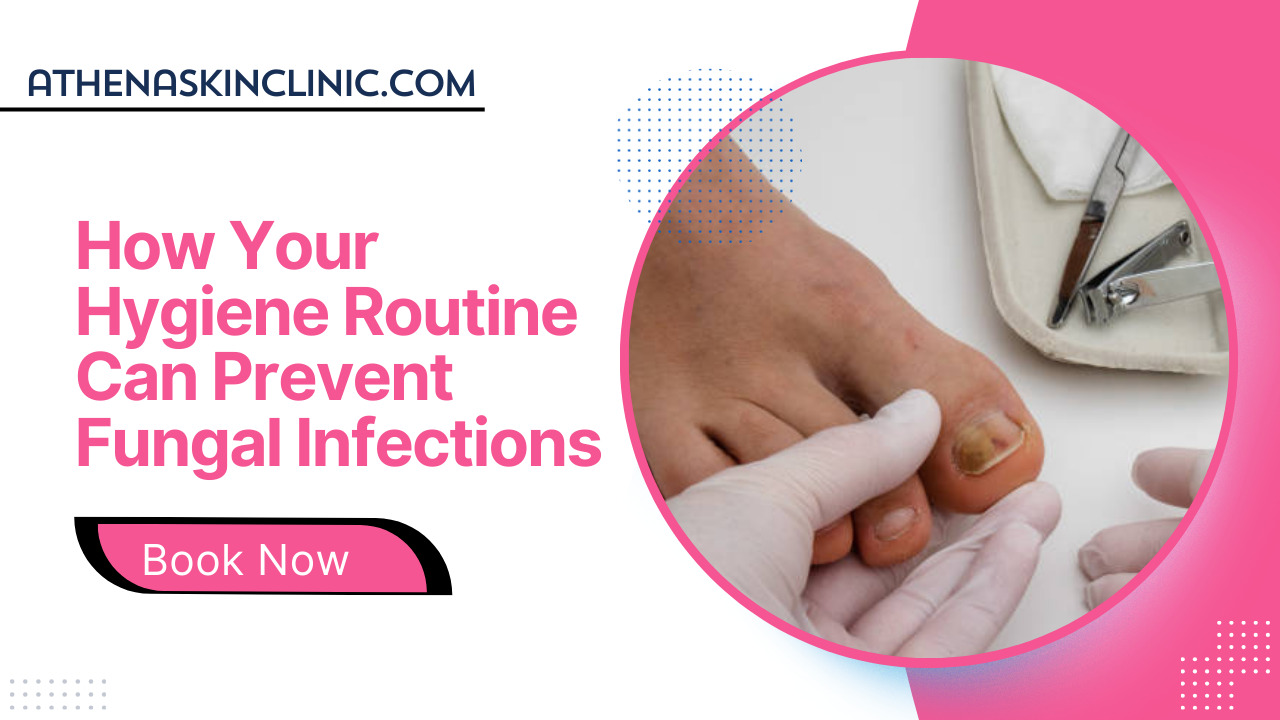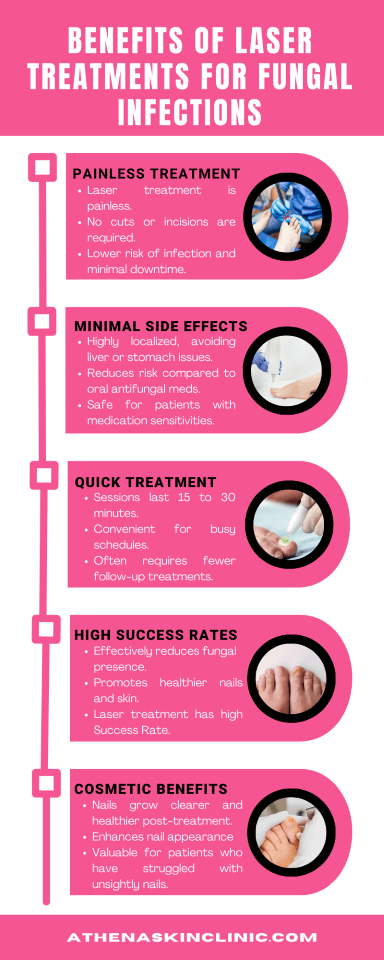Fungal infections are common, often affecting the skin, nails, and hair. Maintaining a good hygiene routine is one of the most effective ways to prevent these infections.
Simple, consistent practices can keep you safe from the discomfort and inconvenience that fungal infections bring.
In this article, we’ll explore how a strong hygiene routine can help you avoid these infections, as well as practical tips to incorporate into your daily life.
Why Hygiene Matters in Preventing Fungal Infections
Fungi thrive in warm, moist environments, making areas like your feet, underarms, and skin folds particularly susceptible.
Poor hygiene can create favorable conditions for fungi to grow, potentially leading to infections like athlete’s foot, ringworm, and yeast infections.
By following an effective hygiene routine, you’re not only keeping these areas clean but also creating an environment that inhibits fungal growth.
1. Proper Foot Hygiene
Your feet are one of the most vulnerable areas for fungal infections due to frequent exposure to sweat, dampness, and enclosed footwear. Athlete’s foot, a common fungal infection, primarily affects those with poor foot hygiene or those who frequently wear tight, enclosed shoes.
Foot Hygiene Tips:
- Wash Daily: Use warm water and mild soap, especially between the toes.
- Dry Thoroughly: Moisture trapped between toes can encourage fungal growth, so dry them well after washing.
- Use Antifungal Powder: This can help keep feet dry and prevent fungi from taking hold.
- Change Socks Regularly: If your feet tend to sweat, change socks throughout the day, choosing moisture-wicking materials like cotton or wool.
- Opt for Breathable Footwear: Shoes made of natural materials, like leather, allow airflow and reduce moisture buildup.
- Alternate Shoes: Give shoes time to dry out between wears by alternating pairs each day.
2. Body and Skin Care
Fungal infections, like ringworm and yeast infections, are common on parts of the body that stay warm and moist. Proper cleansing, drying, and clothing choices can greatly reduce your risk.
Body Hygiene Tips:
- Shower Daily: Especially important after exercising or sweating. Use an antifungal body wash if you’re prone to fungal infections.
- Focus on Drying Skin Folds: Areas like the armpits, groin, and under the breasts can harbor moisture; pat them dry with a towel after bathing.
- Avoid Sharing Personal Items: Fungi can transfer from one person to another via towels, razors, and even clothing. Use your own items, especially at the gym.
- Wear Loose, Breathable Clothing: Tight clothes trap heat and moisture, creating a breeding ground for fungi. Opt for loose, cotton clothing when possible.
3. Hand Hygiene
Fungal infections can be spread from one part of the body to another through contact. Good hand hygiene is vital, especially if you touch areas that are susceptible to infections, like your feet or skin folds.
Hand Hygiene Tips:
- Wash Hands Frequently: Use soap and water, especially after touching high-risk areas or other people’s skin.
- Use Hand Sanitizer: If soap isn’t available, alcohol-based sanitizer can help prevent fungal spread.
- Keep Nails Short and Clean: Fungi can hide under nails, so clean beneath them and avoid biting or scratching skin if you’re dealing with an infection.
4. Nail Hygiene
Nail fungal infections are notoriously tough to treat. Preventing them is often easier than curing them. Keeping nails clean and trimmed helps reduce the risk.
Nail Hygiene Tips:
- Trim Regularly: Shorter nails are less likely to harbor fungi. Use sterilized clippers for each trim.
- Avoid Nail Polish on Infected Nails: Nail polish traps moisture, which can worsen infections or slow healing.
- Wear Flip-Flops in Communal Areas: In public showers, gyms, or pools, wear flip-flops to avoid picking up fungi on bare feet.
- Avoid Artificial Nails if Susceptible: False nails can trap moisture, increasing the risk of nail infections.
5. Hygiene in Shared and Public Spaces
Public places like gyms, pools, and locker rooms are hotspots for fungal infections due to shared surfaces and high moisture. Practicing good hygiene in these settings can help you avoid infections.
Tips for Shared Spaces:
- Shower After Gym Use: Use gym showers if available, and be sure to dry thoroughly.
- Use Personal Towels and Mats: Bring your own towel to the gym or yoga studio, and avoid direct contact with shared surfaces.
- Clean Gym Equipment: Wipe down machines before and after use, as fungi can live on surfaces.
- Wash Workout Clothes After Each Use: Sweaty clothes can harbor fungi, so wash them in hot water after each use.
6. Hygiene for Hair and Scalp
The scalp is another area vulnerable to fungal infections, particularly ringworm. Good hygiene can prevent scalp infections and keep hair healthy.
Hair and Scalp Hygiene Tips:
- Wash Regularly: Especially important if you sweat heavily or use hair products. Consider antifungal shampoos if you are prone to scalp issues.
- Avoid Sharing Combs and Brushes: Fungal spores can live on hair tools, so only use your own.
- Keep Hair Dry: After swimming or sweating, dry your hair completely to prevent fungal growth.
- Protect Hair in Public Pools: Consider wearing a swim cap in pools to reduce exposure.
7. Additional Hygiene Practices for Preventing Fungal Infections
Bedding and Towels
- Wash Regularly: Change sheets and towels at least weekly; more often if you sweat a lot at night.
- Use Hot Water: Washing in hot water can kill fungi that may cling to fabric.
- Avoid Reusing Damp Towels: Fungi thrive in dampness, so allow towels to dry completely after each use.
Skin-Friendly Hygiene Products
- Opt for pH-Balanced Cleansers: These can maintain healthy skin barriers, preventing fungi from taking hold.
- Use Antifungal Products as Needed: If you’re prone to infections, consider antifungal powders or sprays for vulnerable areas.
General Lifestyle Practices
- Maintain a Healthy Diet: Poor diet can weaken your immune system, so ensure you’re eating nutrient-rich foods that support immune health.
- Stay Hydrated: Hydrated skin is less likely to crack and develop tiny breaks where fungi can enter.
- Avoid Touching Your Face or Sensitive Areas: Touching your face, eyes, or mouth can spread fungi, especially if you’ve recently touched an infected area.
When to Seek Medical Advice
If you notice persistent symptoms of a fungal infection despite following good hygiene, it may be time to see a healthcare provider.
Symptoms like itchiness, redness, scaling, thickened nails, or recurring infections may need professional treatment. Your healthcare provider can recommend antifungal treatments or other hygiene tips to help keep infections at bay.
Conclusion:
A consistent hygiene routine is your best defense against fungal infections.
By practicing daily habits that reduce moisture, keeping yourself and your belongings clean, and using antifungal products as necessary, you can keep these infections at bay.
Prevention is easier than treatment, so invest time in hygiene to save yourself from the discomfort and inconvenience of fungal infections.
With these steps, you can create a healthy, fungi-resistant environment for yourself and enjoy clearer skin, nails, and a healthier overall routine.
If you have a fungal infection, you can visit Athena Skin Clinic where our expert doctors can help you treat it. Contact us today!


